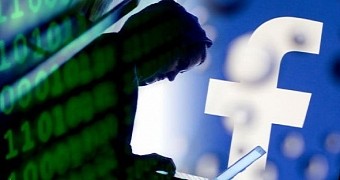The private messages of 81,000 stolen Facebook accounts are available for sale at a price of 10 cents (8p) per account with FBSaler, the seller of the hijacked data, first promoting the bounty on the underground BlackHatWorld forum.
Besides the private messages from 81K profiles, FBSaler also published the information from another 176,000 accounts, with this extra set of data also containing email addresses and phone numbers.
To make matters worse, FBSaler also told the BBC that they had stolen data from 120 million Facebook accounts in total, although they did not provide any proof of it.
However, as also stated by the BBC, the "BBC Russian Service contacted five Russian Facebook users whose private messages had been uploaded and confirmed the posts were theirs."
Out of all the 120 million profiles hacked by the Russian FBSaler group, 2.7 million are Russians, which means that the vast majority of stolen data was pilfered from users located in US, UK, and other countries.
Facebook said to the BBC that their systems haven't been compromised but that they believe some third party web browser extensions might have been behind the data breach.
A total of 120 million Facebook accounts might have had their private information exposed and stolen
"We have contacted browser-makers to ensure that known malicious extensions are no longer available to download in their stores," told Facebook executive Guy Rosen to the BBC.
"We have also contacted law enforcement and have worked with local authorities to remove the website that displayed information from Facebook accounts."
This is the latest incident Facebook went through in a long row of other security breaches, starting with the Cambridge Analytica scandal and culminating with the security issue that affected 50 million users in September.
When the hackers who put the messages of 81,000 accounts up for sale were contacted by the BBC Russian Service, they said that the data they're advertising has nothing to do with the Facebook's September hacking incident or the Cambridge Analytica one.
They also denied having any connections to Kremlin-backed Internet Research Agency hacking group or the Russian state.

 14 DAY TRIAL //
14 DAY TRIAL //